ICOM Prague 2022: The Power of Museums (Nevine Zakaria, Egypt, ITP 2012)
This week we are sharing the blogs and reports written by ITP fellows who attended the 2022 ICOM General Conference in Prague. We were very happy to support fellows in attending the conference through ITP Conference Grants. The third blog of the week is from Nevine Zakaria (Egypt, ITP 2012), who was also a speaker at the conference.
Nevine’s ITP Conference Grant Report
Nevine has also made a short film documenting her ICOM conference experience. The film can be watched at the end of the blog below.
Written by Nevine Nizar Zakaria, Alexander von Humboldt Post-Doctoral Fellow, Würzburg University (Museology Department) & Ministry of Antiquities, Egypt (ITP 2012, Egypt)
“Museums are not just buildings, they are the roots to preserve our cultural heritage, and this place needs to be shared with the young generation in ways that are understandable to them. Youth should be actively involved in ICOM activities and decision-making processes, youth must be included if we want to achieve sustainability“
Hilda Flavia Nakabuye – in her keynote speech in the session of “Sustainability: Museum and Resilience” at the Prague ICOM Conference.
I wrote this blog to share with you my reflection on the 26th ICOM General Conference that took place in Prague (20-28 August), underlying the Power of Museums.
I would like first to thank the International Training Programme of the British Museum (ITP) for their grant which allowed me to present my paper at this conference.
The conference programme was vibrant with a rich diversity of sessions, panels, round tables, working groups, and committee meetings, not to mention the excursions, museum tours, and other social activities. There were thousands of attendees from different geographical areas and cultural experiences, as well as online participants. The conference was indeed a worldwide museum hub for exchanging ideas, challenges, and innovative solutions in the world of museums. Several keynote speeches and panel discussions were addressed by renowned speakers and world-class experts highlighting several debates related to museums and civil society, sustainability and resilience, leadership and museums, new technologies, and other hot topics.
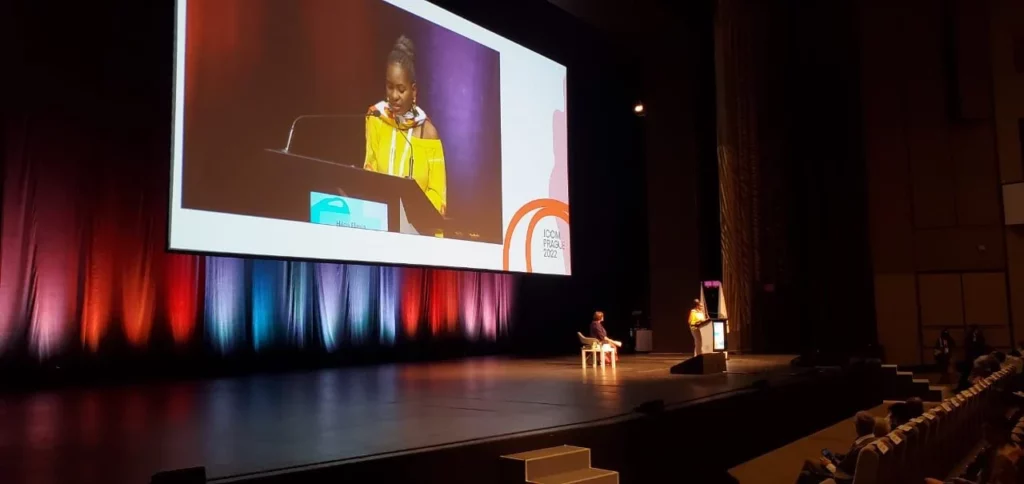
Hilda Flavia Nakabuye in her keynote speech about the climate crisis
The conference tackled many critical issues in the field of museums. Several ICOM committees with multiple perspectives regarding the role of museums in integrating the local communities, social inclusion, the worldwide democratic battle for human rights, climate change, the latest digital technologies, and much more pivotal topics that reflect the contemporary demands placed on museums at present. Several discussions in workshops and roundtables concerning the promotion of solidarity and peace, fostering cultural exchange, strengthening international cooperation, heritage protection in Ukraine, and other projects implemented by ICOM members worldwide.
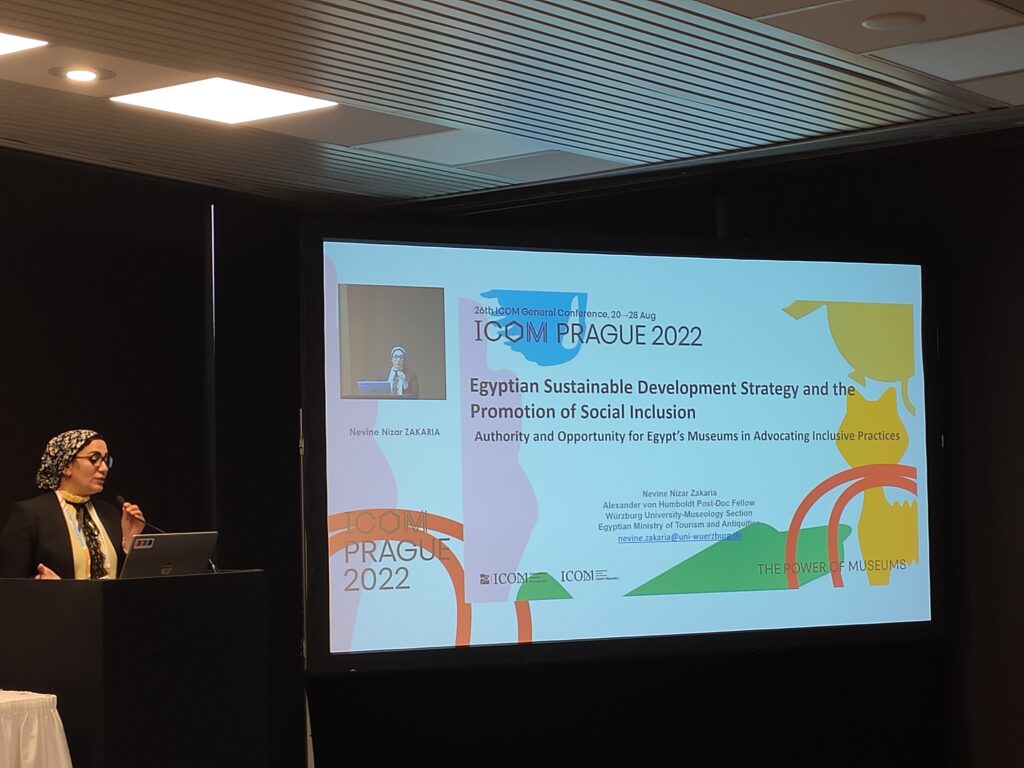
My lecture about the role of museums in social inclusion and combating prejudice.
Through the conference programme, connections were formed, ideas were exchanged, and collaboration was conceived. The conference offered a unique opportunity for me to network and connect with relevant people in the field. It gave me insights into the latest trends and findings in the museum arena with a powerful scientific program that will add value to my ongoing and future academic publications.
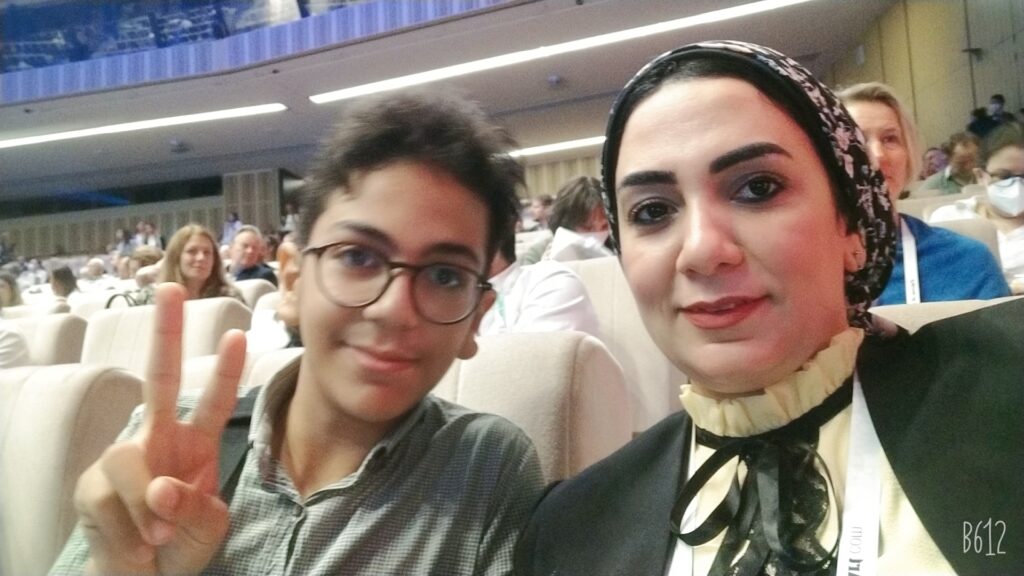
Me and my son in the opening ceremony of the conference.
During the conference, the ICOM strategic plan (2022-2028) was adopted in which the ICOM vision and objectives have translated into applicable actions to support the museum sector worldwide. One of the main highlights of the conference was the ICOM’s approval of the new museum definition with 92.41% of votes (For 487, Against 23, Abstention: 17). This voting was the culmination of the 18-month participatory process that involved hundreds of museum professionals from 126 National Committees from all over the world. Herewith is the new official definition of the ICOM: “A museum is a not-for-profit, permanent institution in the service of society that researches, collects, conserves, interprets, and exhibits tangible and intangible heritage. Open to the public, accessible and inclusive, museums foster diversity and sustainability. They operate and communicate ethically, professionally and with the participation of communities, offering varied experiences for education, enjoyment, reflection and knowledge sharing.”
“This new definition is aligned with some of the major changes in the role of museums, recognizing the importance of inclusivity, community participation, and sustainability.”
ICOM President Alberto Garlandini.
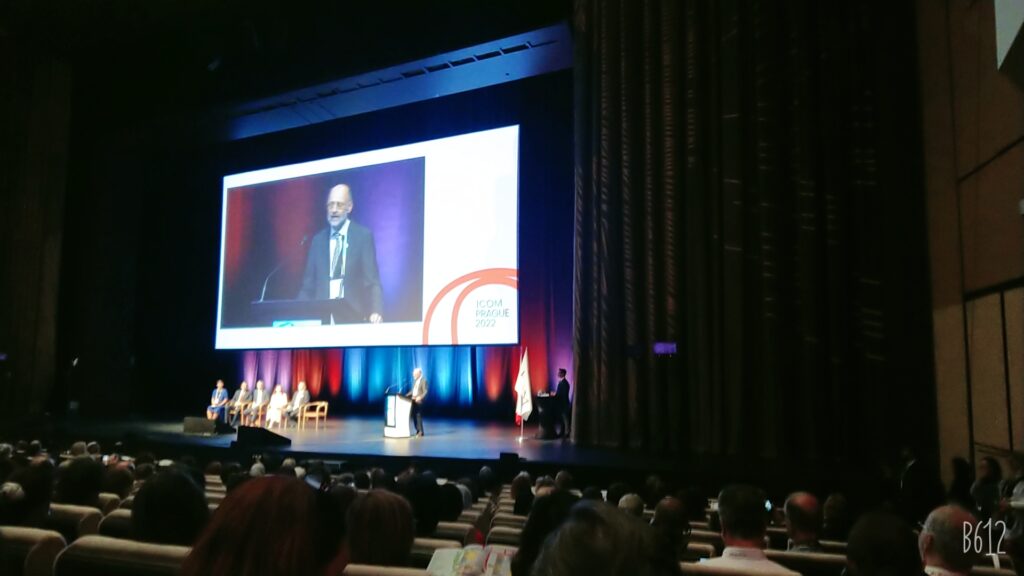
ICOM President Alberto Garlandini
One of the keynote speeches that had a major impact on me was the speech of Kateryna Chuyeva about the scale of crimes against Ukraine’s Cultural Heritage that exceeded the crisis caused by WWII. You are encouraged to visit this link to capture the scale of damage to Ukraine’s Cultural Heritage.
Another interesting talk by the director of the War Childhood Museum of Bosnia and Herzegovina tackled the experience of childhood affected by war. You are encouraged to visit the museum website, to catch up on what museums can do to change people’s lives and make our world a better one to live in.
As part of the conference agenda, there was a rich social programme for excursions, study trips, and museum visits. We had an interesting walk to Prague towers and historical gardens, tourist attractions, and city landmarks. We had several events in museums. We had an exciting visit to a whole different city, Brno, by a historical train. It was a wonderful trip to Brno where each group experienced different types of museums and programmes.
One of the key benefits of attending the conference was networking. I meta lot of people; colleagues from MoTA, museum professionals, and museum directors that were connected to the museology department of the university (where I am working now). It was wonderful to meet and reconnect with colleagues from ITP. The conference was a great opportunity to enable me to reunite with ITP’s fellows.
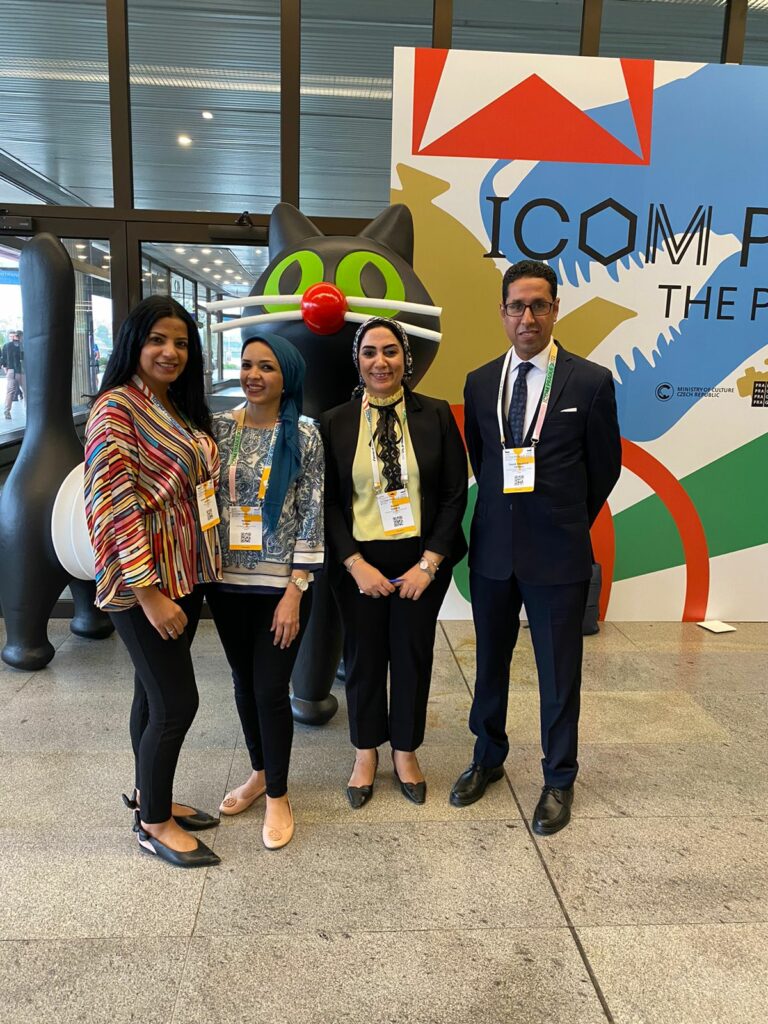
Traveling to a new city, Prague, was a big part of my appeal to the conference. I have visited new places (Prague and Brno), experienced local food, and explored Czech landmarks. Not to mention dinners, excursions, parties, and much more attractive social programmes. It was a fun and enjoyable experience!
And finally, I would like once again to extend my gratitude to the International Training Programme of the British Museum and the Marie-Louise von Motesiczky Charitable Trust, without which I would not have been able to present my paper at this conference.
